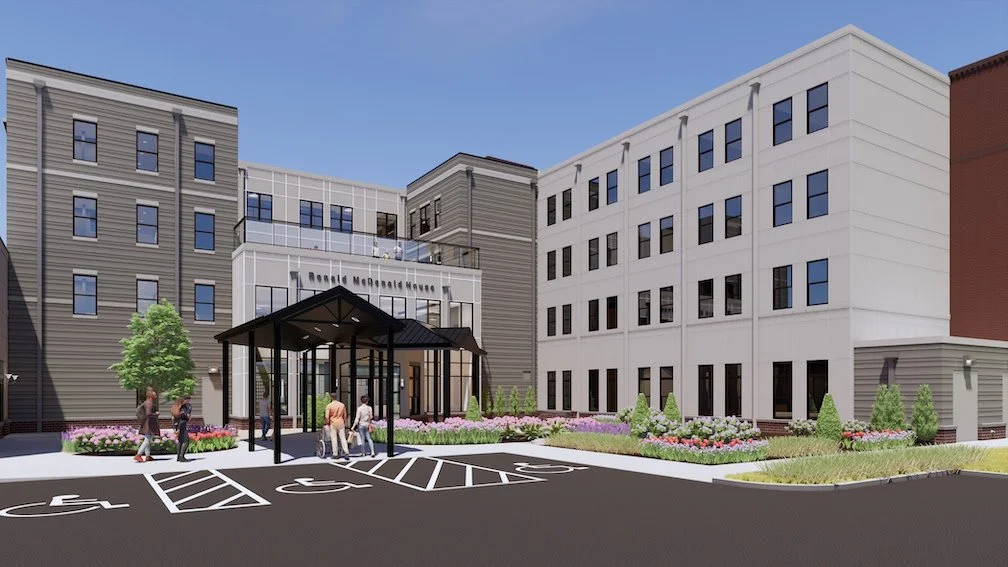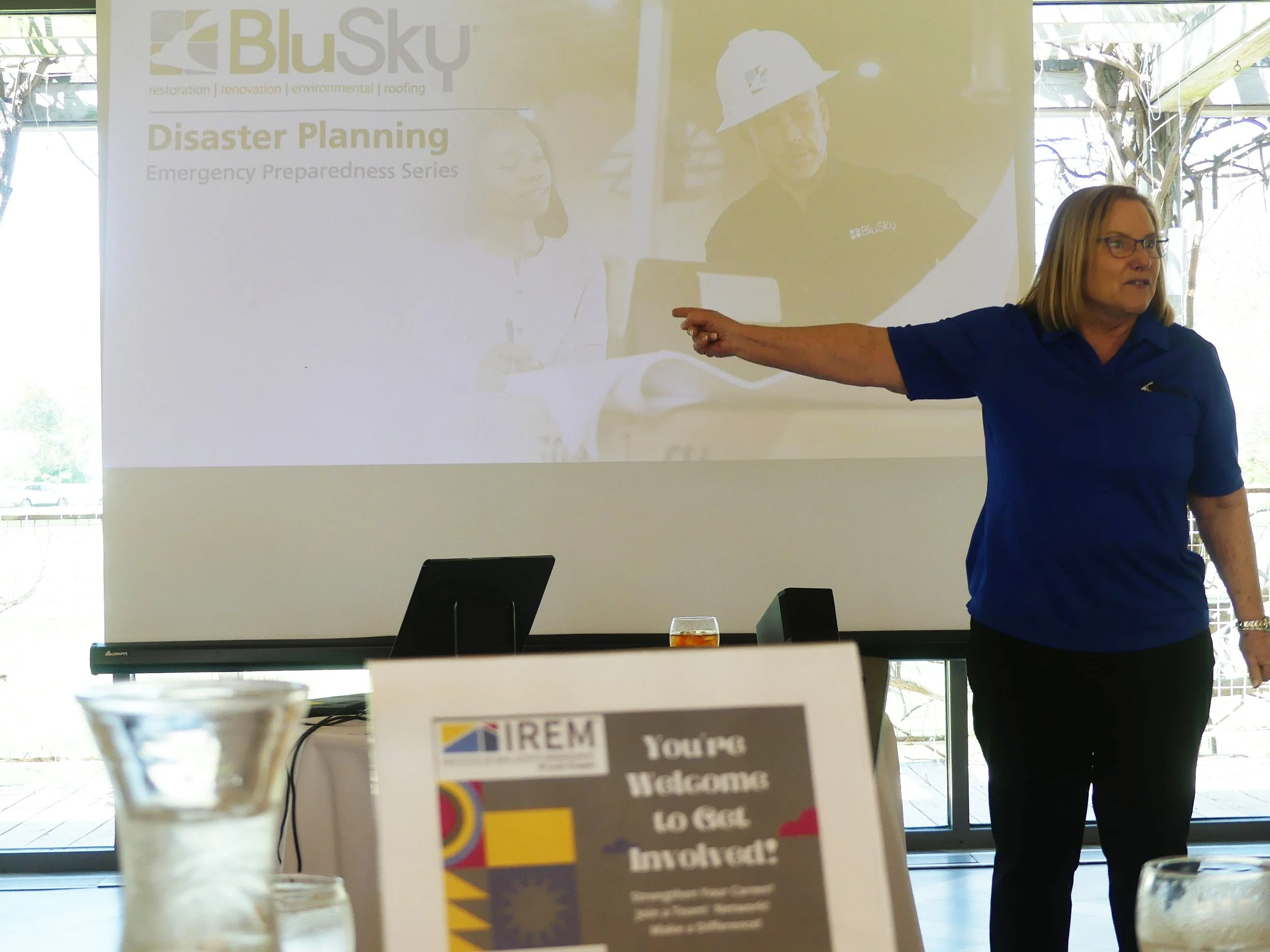FEATURE PHOTO CREDIT: RUTH THALER-CARTER | MWM STL
Concerns arise as medical marijuana cards reach full throttle
Pandemic continues to have legal impact on commercial real estate
The legal aspects of the COVID-19 pandemic might be as difficult for business owners and tenants as the disease itself, judging by insights from Joseph Bealmear, a real estate attorney and shareholder with Polsinelli PC, at an April 14 meeting about “Navigating Commercial Real Estate Legal Issues through COVID” hosted by IREM-St. Louis at the Serendipity Labs location in Clayton, Mo.
The key issues for commercial real estate professionals to understand in coping with and responding to recent COVID-related legal issues start with the impact of force majeure contract terms, Bealmear said. This came up for hotels, retail businesses and leases for other types of tenants.
“It’s boilerplate that people rarely thought about but would include everything,” he said. “Most force majeure provisions didn’t include a pandemic — maybe 150 contracts out of 1,200 we’ve reviewed.”
Having the federal government and many state and local jurisdictions calling for a shutdown made the situation even more challenging.
“The first question across the board was ‘What can we do?’ Some tenants were trying to get out of their leases, but most wanted to stay and not pay rent if they couldn’t operation. The issue was location-specific.”
The rule of law came into play, Bealmear said, saying that “impossibility of performance” could be used to support such efforts. Many matters in this area were resolved through negotiation because that is easier than going to trial, and “the legal system is still not operating efficiently.”
There is still no standard language for dealing with force majeure related to a pandemic, he noted. “It’s acute in situations where you couldn’t close deals — it could be disastrous.”
Co-tenancy clauses also were, and could still be, a pandemic legal concern, especially for tenants in malls, who could walk away from leases is the main tenant closed. Such events have been triggered by stores going bankrupt, although Bealmear noted that many of those would have happened even without a pandemic.
“It’s a tricky issue for both; when anchors shut down, there’s a ripple effect among smaller shops in the space.”
Cash management provisions in loans are more of an issue if a commercial loan is not local, Bealmear said; local lenders might be more willing to negotiate terms. He suggested that commercial real estate professionals suggest that their tenants or clients “prioritize debts with the biggest hammer if you get over your head.” That approach helped keep a lot of operators in business in the early days of COVID.
It might be possible to renegotiate lease rates; hotels, for instance, used nontraditional equity to keep running and saw few closures. The retail sector saw a rise in percent rents instead of flat rates. Office buildings reduced rents in exchange for extended terms.
The medical sector, however, saw a “huge wave” of bankruptcies, mainly due to high fixed costs and employee levels rather than rents. The impact was more noticeable on the national level than local.
The impact has been less in the industrial/warehousing sector.
“There is some pain in working on such issues,” Bealmear said.
Because most states do not let landlords or commercial property owners take personal action such as changing locks or taking possession of a non-paying tenant’s possessions, the leverage for making a tenant pay their rent is lost.
The challenges will continue to evolve, including lawsuits over insurance. Coverage varies by company, with suits being settled but some still active.
Bealmear expects to see new policies that will take events such as pandemics into account, and that some insurance companies will be among those that go bankrupt.
Space-sharing should have an uptick, and there will be less interaction among or for employees as commercial properties adapt to the post-pandemic era. There will be “hoteling” of space: bringing people back into commercial space only on certain days.
Bealmear advised colleagues to keep an eye out for legislation relative to business liability for COVID exposure as employees start to return to work. If an employee were to sue, they would have to prove where they got the disease, and it can be hard to trace contact points, unlike with an issue such as asbestos.
One area catching the commercial real estate sector by surprise, Bealmear said, is “pre-bankruptcy”: when tenants threaten to file bankruptcy. “The first question to ask is whether the location is unprofitable versus the entire business is unprofitable,” he said. A little-noticed 2016 case in Illinois could now have an impact on Missouri real estate, because it found that the bankruptcy code overrides anything in a lease. “You can’t evict a tenant that files bankruptcy, or terminate their lease,” he said in part.
“COVID trends in the bankruptcy process are still evolving as a lot of tenants are insolvent but aren’t filing bankruptcy because they can’t pay for it,” Bealmear said. “People who work on bankruptcy also are not getting paid.”
Because the overall situation is still fluid, commercial real estate professionals should review all of their contracts and consider sitting down with their attorneys to identify where they might be at risk or need to update language to correspond with the continuing effects and impact of the pandemic.
Other business included IREM-St. Louis president Liz Brown reminding attendees of upcoming events: a chocolate and wine tasting on May 20 and the annual golf tournament on May 27 at Missouri Bluffs Country Club. Sponsorships are still available for the golf event, as are raffle tickets for a Busch Stadium dispay, with proceeds supporting Friends of Kids with Cancer. (See the IREM-St. Louis website for details: https://iremstl.com/.)
Two colleagues were also inducted as new Certified Property Managers (CPMs): Cory Redman, CPM, US Bank, and David Harris, CPM, UMB Bank.







